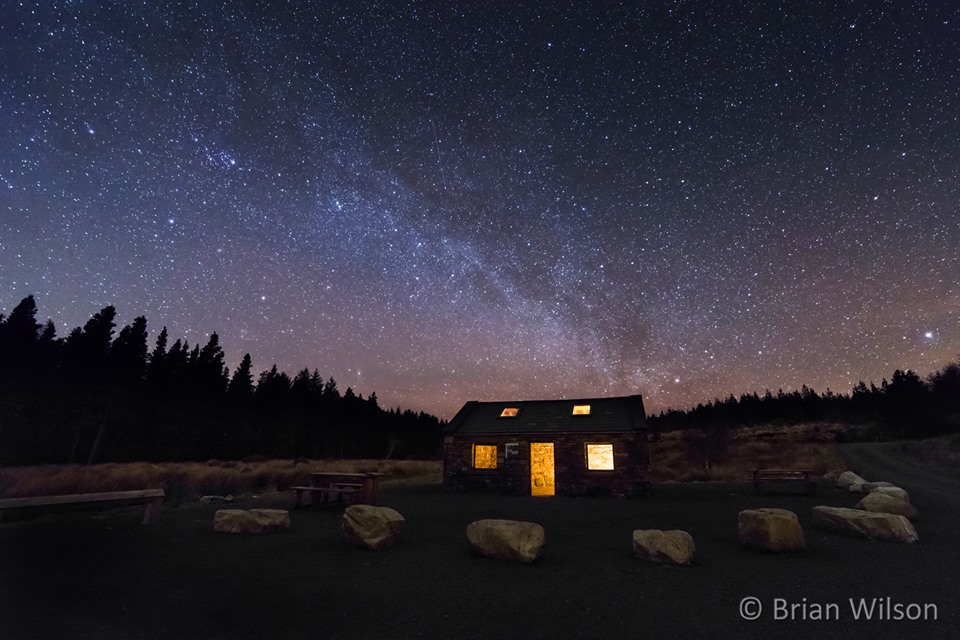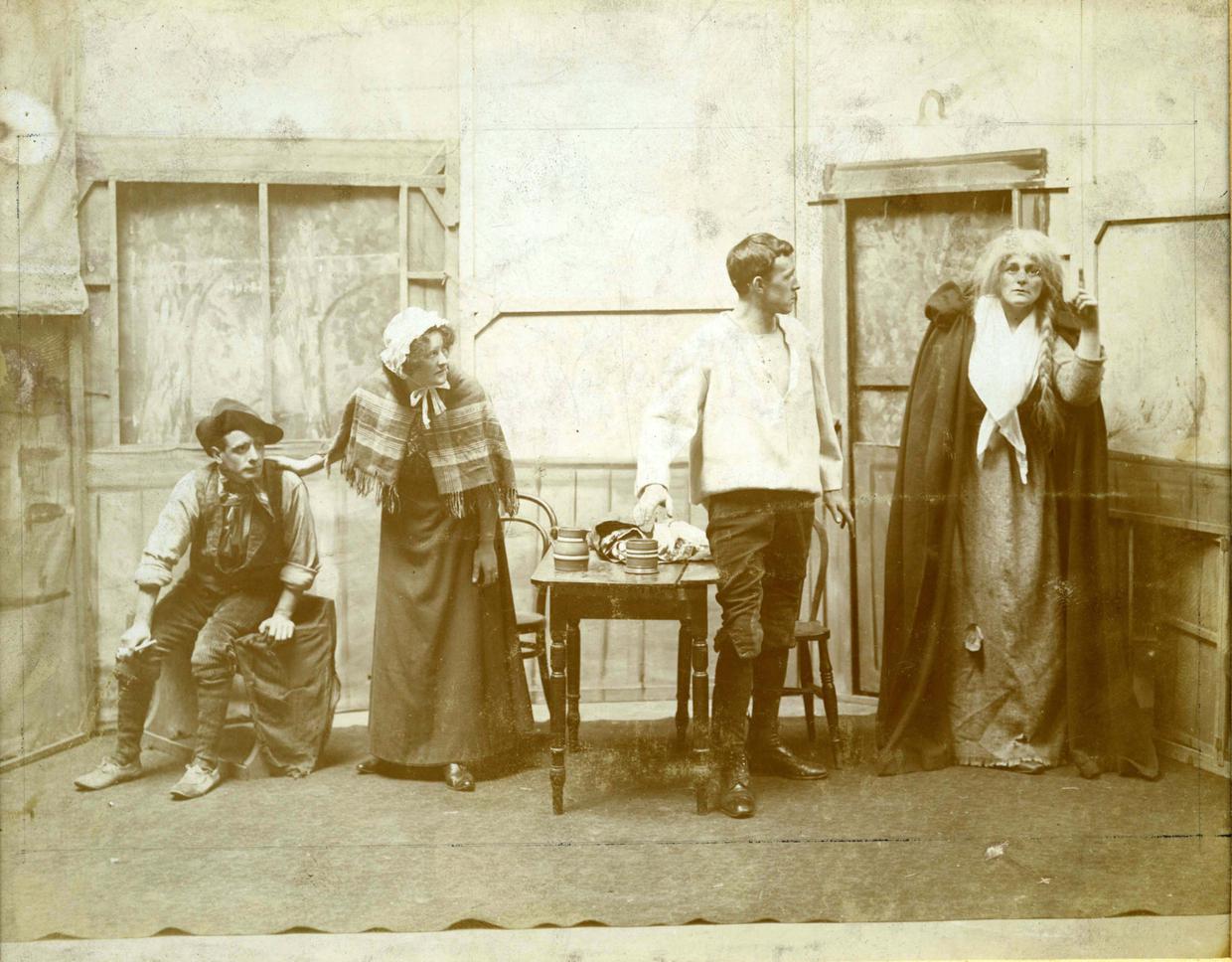This is an extract from the first book in my Yeats-Gonne series, A Life Before This One, a biographical fiction series about Maud Gonne, her daughter Iseult and the poet, WB Yeats, publishing later this year. In this extract, Rosy Cross witnesses the birth of Lily Neill who will later be known as Honor Bright and Maud Gonne's playing Caitlín ní Houlihán in WB Yeats's play of that name. To read previous extracts, and receive a new novella from me, monthly: become a fiction patron here.
It was dark by the time we left. Kate’s husband had come home, well inebriated, and we’d left him clicking his tongue at the baby and making silly faces and noises. Goo goo, coochy coo. I wondered whether this one was his, for I knew that at least two of Kate’s five children were not.
She had started early, the whole village knew it. Only fifteen, in a field up behind a field. With Master Rochford, no less. Black Jack. Well I could imagine it, oh yes. Her walking home after, blood between her legs though it wasn’t her time. Oh yes.
After the orange and brown colors of Neill’s cottage, the light outside was dim-grey and soothing. The moon was a thin slice of silver, a shard of crystal set off by summer stars. In the fields, there were buttercups, towering bachelor's buttons, tiny sprigs of lavender, and butter-yellow ragwort, all paled by night light. As we walked the road I’d walked a thousand times, and Nana a hundred thousand, we took in the scent of ordinary, slightly acrid, smells—the wildflowers, the damp earth, the fresh cow dung—and I forgot all about Kate Cullen and her children, for the knowing was on us both.

What I didn’t know as we walked together, step in step, was that I would never see Nana again after that visit. I knew, yes, that there was the chance of it. Every emigrant lives with such knowledge but that last night with her, it was low down in me. We were both full of Kate’s little one, and the wonder of all we'd witnessed, wrapped up in the light of a quarter-moon.
I was tired and exultant and I hardly knew where I was, though I was walking a road more familiar to me than any other, the main road of Graiguenaspiddogue, my home place. “Never again,” Kate had said, and I’d said to myself, meaning something different: never again for me neither.
I’d have to transform. The newborn’s eyes had reached where Mammy’s framed embroideries of the Virgin Mary and rosary beads big as my thumbnails, had failed. Shame pierced me, like a flint through a blister. In her glow, I saw myself clear, birthing-bed to grave, and in that seeing, I saw all the babies of the world.
It wasn’t that I wanted to hold her, or feed or dress her, or even that I wanted to protect her from the world’s dirt and dangers. It was that she entered me. I felt her, silver and snakelike, settling inside my own skin, giving me back to myself. It wasn’t just a passing emotion, it was a whole new way of feeling.
***
Three beautiful women. I still dream of poor Kate Neill, Cullen as was, though more often of her daughter, who soon was renamed by those who found her name too like her mother's and sisters. Lily, she became. Lily Neill. And later Lizzie. And later again, poor Honor Bright. And poor Maud Gonne too, the third of my trilogy of beauties, the most beautiful of them all.
All three shared a quality, which was shared also by Nana. Though she didn’t have their figure or features, when she was in the knowing, you felt it from her too: like the sky was dropping you down through time, returning you to some dim never-memory, barely perceived, but there. Ever there, remaining bright and clear, long after more seemingly solid things had faded.
I felt it the night Honor was born. And next night, I felt it all over again, while watching Maud Gonne play Caitlín ní Houlihán in WB’s play.
I’d no trouble catching the train this time. By 7pm, Madge and I were walking down Clarendon St towards St. Teresa's Hall in our best hats. Word was out about the play and it was so crowded they were turning away customers but Madge had our tickets booked, and we walked past the line of the disappointed, in through to door and down the aisle, to take our excellent seats, close up to the stage, so we were looking right into the players' eyes.
Maud Gonne played an old, old woman who arrived on a dark night to the door of a cottage much like our house in Graiguenaspiddogue, where they were preparing for the impending wedding of their son. Given the hospitality of the house, she told them of her four beautiful green fields, stolen from her by strangers. When the boy of the house agreed to leave his home and fiancée to fight for her, she threw off her age, and walked no longer with the walk of an old woman, but with the walk of a queen.
I didn’t understand the play at first but Madge, who’d seen it already and was full of it since, spelled out its tragic meaning for me in whispers. The old lady was speaking of Ireland’s four provinces, and the strangers were the English, and she was calling on the youth of Ireland to help her win them back, to sacrifice their lives if need be.
“They shall be remembered forever,” she said, of those willing to die for Ireland, eyes burning like the eyes of Jesus in a sacred-heart portrait. Madge and I both felt we were being stared at but so did all the others we talked to after. “They shall be alive forever,” she blazed, and I can feel the fire of it still. “They shall be speaking forever. The people shall hear them forever.”
That was the second half of the transmogrification that happened for me, on my trip home to Ireland that year. Nana's powers, and Madame’s performance, and Lily's birth fused, and everything was different after.
***
On the boat back to France the next day, the sky overhead was as raw a blue as one of those new wax crayons. Under its mantle, I carried my new resolutions towards the life I knew I had to disassemble. Ahead, the land looked fuzzy and indistinct but the sun was shining on the water, flashes of silver and gold sparkling the waves till they dazzled.
Sparks of light. If Kate and Honor were moonlight, Madame Gonne was the sun, with her auburn hair and hazel eyes shining golden in the sea of grey all round her, burning the air for miles around, warming up the world. All three of those women were lovely, but Madame Gonne was the loveliest. “The most beautiful woman in the world”, a journalist said, and while that’s only ould hack talk, she was blessed in the looks department, no question. Not only loveliness of face and form but also a great stature, nearly a foot higher than Kate and Honor, who were far from short.
And then of course her great fortune to set it off. Well, much good it all did her. Poor Honor, poor Kate, and poor Maud Gonne. I was never of their rank in the beauty stakes and right glad I am of it, too.
And yet… I can still feel the glow of their presence pressing into me, fifty years on. And when I remember, I belong again without longing, and the same, single tear rolls down my old cheek.
 To receive award-winning fiction from me each month, become a fiction patron on Patreon (just £3 a month).
To receive award-winning fiction from me each month, become a fiction patron on Patreon (just £3 a month).
